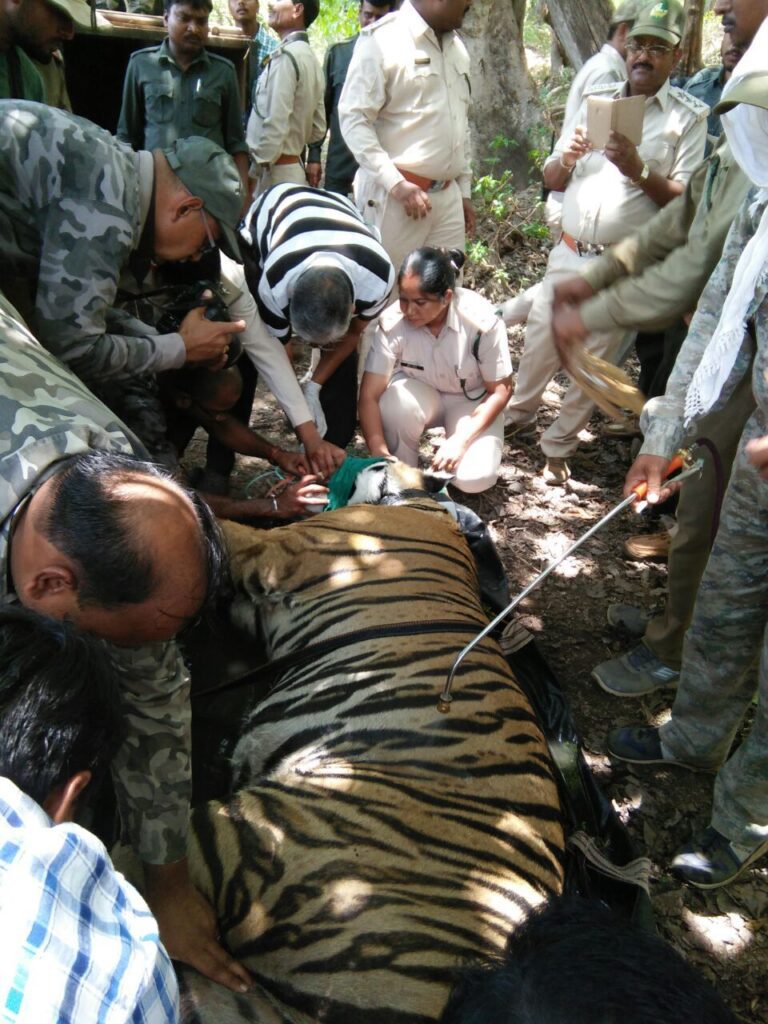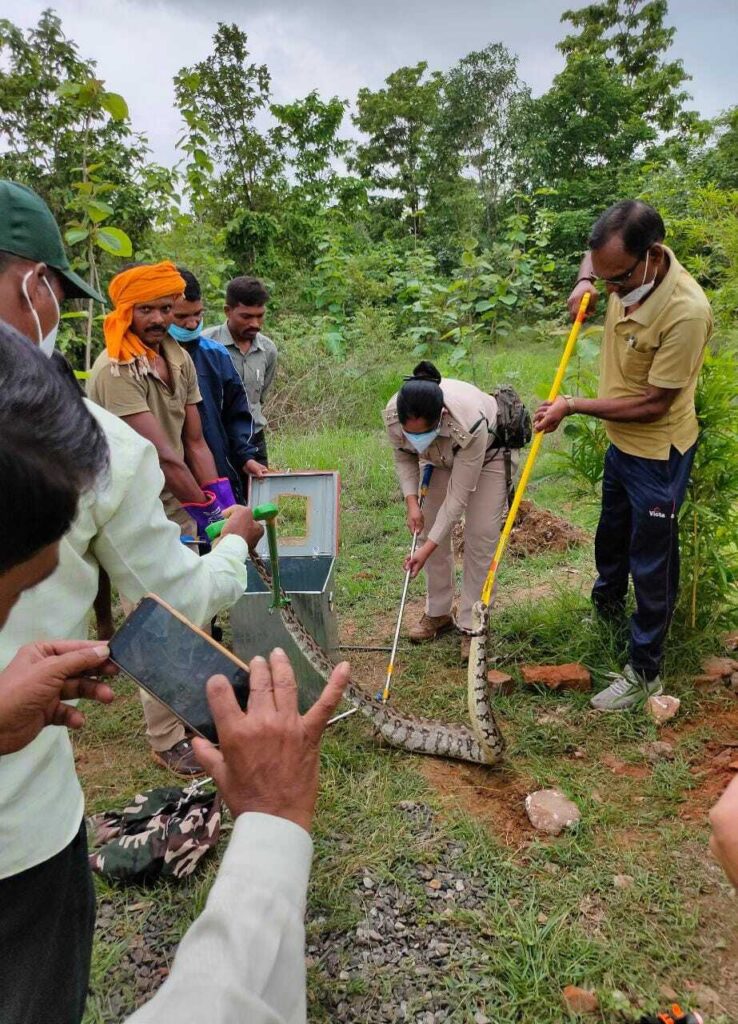Very rarely do reel and real life collide. But when they do, sparks fly and people sit up and take notice. Something like this happened recently after the release of Hindi film `Sherni’, which opened to critical acclaim and brought to sharp relief the age old man-animal conflict in India.
In a unique gesture, the producers of `Sherni’ (the tigress) which starred top Hindi actress Vidya Balan have tipped their hat to what they acknowledge as the real heroines of our forests: that it, the woman forest officials. Days after the release of Sherni, Ms Vidya Balan held a virtual interaction with 25 officials of Madhya Pradesh forest department.
IT’S A TOUGH AND CHALLENGING JOB: VIDYA BALAN
As the film `Sherni’ was mainly shot in the forests of Madhya Pradesh, particularly Balaghat and its surrounding jungles, Ms Balan thought it fit to interact with the women forest officers of the state. She admitted candidly that she learnt a lot about forests and life of forests officials only after her interaction with them while filming. “It’s a very tough and challenging job, and I salute you all for protecting our wildlife and conserving our forests,’’ she said.

The hour long interaction saw the forest officials recounting exciting- and at times unnerving- aspects of their work. Ms Sita Jamra, posted as range officer in Kanha Tiger Reserve, is a real-life expert on rescue operation of endangered animals. As she recalled, her first such encounter happened with a bear who had fallen into a well. “We rescued the bear, but instead of proceeding to the forests, it charged on us. It was a very tough situation, and we saved our lives by the skin of our teeth,’’she said.
Of late, the tiger has been become a major attraction for a large number of tourists and wildlife photographers. Jungle safaris have become quite popular all over the country, and Madhya Pradesh, often called the tiger state of India, is no exception. But alas, how little we know of the grinding back-end work, often hidden from the public gaze, which goes into the protection of this magnificent big cat.

TRACKING TIGERS IS A FULL-TIME WORK
Dr Ruhi Haq, an officer posted in a forest range of MP which has 40-45 tigers, explained the situation. “Where I am posted,’’ she revealed, “there is quite a lot of tiger movement. At times, a tiger starts frequenting the same pond where the villagers’ cattle go to quench their thirst, it moves on the same path where villagers also move. Now this can be problematic, and we have to ensure the safety of both the tigers and the people. At all times, we know the location of our tigers. If one of them goes missing for 4-5 days, we launch a combing operation to track it down.’’
Another officer, Ms Anjana S Tirke, recalled how a gang of poachers once killed a tiger by electrocuting it. “It was a tough case to crack, but we took help of a dog squad and nabbed the culprits,’’ she said.
Also present in the interaction was the managing director of Madhya Pradesh Tourism Board, Mr Shiv Shekhar Shukla. The film Sherni, he said, was a fitting tribute to the efforts being put by the women forest officials of the state to protect the tigers and other wildlife. “It is mainly because of their hard work that our forests and wildlife are safe and secure,’’ he added.
The interaction ended on a happy note, with a beaming Ms Balan and the women forest officials of Madhya Pradesh congratulating each other. In this age and time when film actors are obsessed only with their own self-promotion, ably aided by agencies which have honed click-baiting into a fine art, Ms Balan’s gesture is particularly heartening. After all, how many times do we see an actor acknowledging- let alone paying homage to- his or her muse?



















